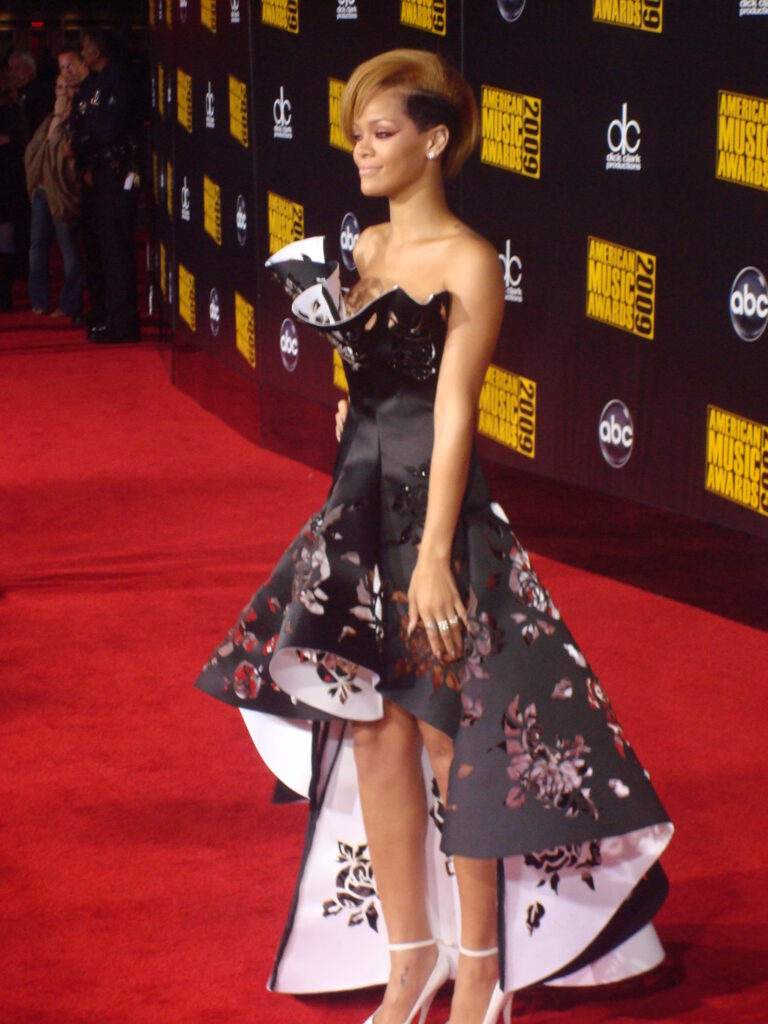
Angelina Jolie has long transcended the conventional definition of a Hollywood celebrity, carving out a multifaceted career that spans acclaimed acting, impactful filmmaking, and relentless humanitarian advocacy. Her public persona, often under intense scrutiny, is underpinned by a profound personal journey marked by both profound challenges and extraordinary achievements. From her early beginnings as the daughter of actors to her eventual transformation into one of the world’s most recognizable humanitarians, Jolie’s narrative is one of constant evolution and unwavering commitment to causes greater than herself. Her engagement with global issues, particularly her dedicated work with refugees, has reshaped public perception of celebrity philanthropy.
This in-depth examination delves into the distinct phases of Jolie’s life and career, illustrating how her formative experiences, artistic pursuits, and humanitarian calling have converged to create a unique and influential figure. Her journey reflects a singular drive to understand and address the complexities of the human condition, whether through the characters she portrays on screen or the vulnerable populations she champions across the globe. By exploring these pivotal moments and contributions, one gains a comprehensive understanding of the forces that have shaped her remarkable trajectory.
We embark on a detailed exploration of her early life and the initial struggles that defined her youth, tracing her professional ascent from experimental film roles to the critical and commercial successes that cemented her status as a global icon. This narrative also illuminates the nascent stages of her humanitarian awakening, a path that would eventually redefine her public mission and impact far beyond the entertainment industry. Each segment offers an analytical perspective on the decisions and experiences that have collectively forged her distinctive identity and enduring legacy.

1. **Early Life and Formative Challenges**: Angelina Jolie Voight was born on June 4, 1975, in Los Angeles, California, to actors Jon Voight and Marcheline Bertrand, a lineage that inherently placed her within the orbit of the entertainment industry. Following her parents’ separation in 1976, she and her brother, James Haven, were primarily raised by their mother, who consciously set aside her own acting ambitions to focus on her children’s upbringing. This early familial dynamic, marked by separation and a mother’s devoted sacrifice, provided a foundational context for Jolie’s developing worldview, influencing her early interests and later life choices.
Her adolescence was characterized by a distinct sense of isolation and nonconformity, particularly during her time at Beverly Hills High School, where she felt marginalized among her more affluent peers due to her mother’s modest income. Teased for her thin frame, glasses, and braces, these experiences led her to transfer to Moreno High School, an alternative institution, where she embraced a “punk outsider” identity. This period saw her adopt all-black clothing, engage in moshing, and even knife play with a live-in boyfriend, reflecting a profound search for identity and belonging. Interestingly, during this time, she temporarily abandoned acting classes, aspiring instead to become a funeral director and even pursuing at-home courses on embalming, underscoring a fascination with life’s profound realities.
The emotional landscape of Jolie’s teenage years was fraught with significant personal struggles. She openly described finding it difficult to emotionally connect with others, which manifested in self-harm, a practice she later described as a “ritual of having cut myself and feeling the pain, maybe feeling alive, feeling some kind of release, it was somehow therapeutic to me.” Compounded by struggles with insomnia, an eating disorder, and early drug use—including a candid admission of having used “just about every drug possible” by age 20, particularly heroin—her mental health challenges were severe. These culminated in episodes of depression, two documented suicide attempts at ages 19 and 22, and a nervous breakdown at 24, leading to a 72-hour admission to UCLA Medical Center’s psychiatric ward. A pivotal turning point arrived two years later with the adoption of her first child, Maddox, which she credited with bringing stability, stating, “I knew once I committed to Maddox, I would never be self-destructive again.”
Her relationship with her father, Jon Voight, remained dysfunctional throughout much of her life, stemming from his departure from the family when she was less than a year old. Jolie described their subsequent interactions as sporadic and often mediated by the press. Despite a brief reconciliation when they appeared together in *Lara Croft: Tomb Raider* (2001), their relationship deteriorated once more. This led Jolie to legally remove her surname, Voight, in 2002, a move followed by Voight’s public comments about her “serious mental problems.” This estrangement persisted for six-and-a-half years, with her mother and brother also breaking contact with him. Reconciliation eventually began after her mother’s death from ovarian cancer in 2007, publicly confirmed three years later, highlighting the enduring complexity of their family ties and the deep personal history that shaped her resilience.

2. **From Low-Budget Films to Breakthrough Roles**: Jolie formally committed to acting as a profession at the age of 16, yet her initial foray into the industry was met with resistance. She frequently encountered rejections at auditions, often being told that her demeanor was “too dark” for the roles she sought. Despite these early setbacks, her commitment to the craft was evident. She gained early experience by appearing in five student films directed by her brother during his time at the USC School of Cinema-Television, providing a foundation for her on-screen presence.
Her pre-Hollywood career also included appearances in several music videos, contributing to a diverse early portfolio. She featured in Lenny Kravitz’s “Stand by My Woman” (1991), Antonello Venditti’s “Alta Marea” (1991), The Lemonheads’s “It’s About Time” (1993), and Meat Loaf’s “Rock and Roll Dreams Come Through” (1993). Additionally, her image graced the cover of the Widespread Panic album *Everyday* in 1993, showcasing her presence in various media formats before her mainstream film debut. These experiences, though outside of traditional film, helped her hone her expressive capabilities and screen presence.
Jolie’s professional film career commenced in 1993 with a leading role in the direct-to-video science-fiction sequel *Cyborg 2*, where she portrayed a near-human robot designed for corporate espionage. This initial experience proved disappointing, leading her to take a year-long hiatus from auditioning. Her return to the screen, however, marked a significant turning point. After a supporting role in the independent film *Without Evidence* (1995), she starred in her first major studio film, *Hackers* (1995). Janet Maslin of The New York Times notably observed that Jolie’s character “stands out … because she scowls even more sourly than [her co-stars] and is that rare female hacker who sits intently at her keyboard in a see-through top,” signaling her unique on-screen appeal.
While *Hackers* did not achieve box office success upon its initial release, it garnered a significant cult following after its video distribution, elevating Jolie’s profile within a niche audience. This role is widely regarded as her breakthrough, establishing her as a distinct presence in Hollywood. Subsequent roles in the modern-day *Romeo and Juliet* adaptation *Love Is All There Is* (1996) and the road movie *Mojave Moon* (1996) further expanded her acting experience. In *Foxfire* (1996), she delivered a compelling performance as Legs, a drifter who inspires four teenage girls against a predatory teacher. Jack Mathews of the Los Angeles Times praised her, noting that “Jolie, Jon Voight’s knockout daughter, has the presence to overcome the stereotype,” underscoring her ability to imbue complex characters with depth and magnetism even in early projects.

3. **Critical Acclaim and Academy Recognition**: Jolie’s career trajectory saw a marked improvement following her performance in TNT’s *George Wallace* (1997), a television film chronicling the life of the segregationist Alabama Governor. Her portrayal of Wallace’s second wife, Cornelia Wallace, earned her a Golden Globe Award and a nomination for a Primetime Emmy Award for Outstanding Supporting Actress in a Miniseries or a Movie. Lee Winfrey of The Philadelphia Inquirer lauded her performance as a highlight of the well-received film, demonstrating her capacity for dramatic depth and earning significant industry recognition.
This period was further defined by her acclaimed role as supermodel Gia Carangi in HBO’s *Gia* (1998). The television film unflinchingly depicted Carangi’s descent into heroin addiction, the destruction of her career, and her eventual death from AIDS. Jolie’s intense and committed portrayal garnered widespread critical praise; Vanessa Vance of Reel.com retrospectively remarked, “Jolie gained wide recognition for her role as the titular Gia, and it’s easy to see why. Jolie is fierce in her portrayal—filling the part with nerve, charm, and desperation—and her role in this film is quite possibly the most beautiful train wreck ever filmed.” For this transformative performance, Jolie secured her second consecutive Golden Globe Award, another Emmy Award nomination, and her first Screen Actors Guild Award, cementing her status as a formidable dramatic actress.
Jolie’s dedication to method acting was particularly evident during the filming of *Gia*, where she famously maintained character between scenes. She informed her then-husband, Jonny Lee Miller, that she would be unable to communicate, relaying, “I’d tell him: ‘I’m alone; I’m dying; I’m gay; I’m not going to see you for weeks.'” The emotional intensity of the role prompted her to briefly step away from acting after *Gia* wrapped, feeling she had “nothing else to give.” During this hiatus, she moved to New York to pursue night classes at New York University, studying directing and screenwriting. However, the encouragement from her Golden Globe win for *George Wallace* and the positive critical reception for *Gia* soon prompted her return to acting.
Upon her return, following the previously filmed *Hell’s Kitchen* (1998), Jolie joined an ensemble cast in *Playing by Heart* (1998), which earned predominantly positive reviews. Her performance, in particular, was singled out for praise, with Peter Stack of the San Francisco Chronicle calling her “a sensation as the desperate club crawler learning truths about what she’s willing to gamble.” This role earned her the Breakthrough Performance Award from the National Board of Review. While *Pushing Tin* (1999) and *The Bone Collector* (1999) received mixed critical responses—with her character in the former being criticized as a “ludicrous writer’s creation”—they showcased her continued presence in varied cinematic projects and her willingness to take on diverse roles.
Her career culminated in a major artistic triumph with *Girl, Interrupted* (1999), an adaptation of Susanna Kaysen’s memoir, where she played Lisa, a sociopathic patient in a psychiatric hospital. Emanuel Levy for Variety deemed her “excellent as the flamboyant, irresponsible girl who turns out to be far more instrumental than the doctors in Susanna’s rehabilitation.” Roger Ebert notably described her as “one of the great wild spirits of current movies, a loose cannon who somehow has deadly aim.” This performance garnered Jolie the Golden Globe Award for Best Supporting Actress – Motion Picture, the Screen Actors Guild Award for Outstanding Performance by a Female Actor in a Supporting Role, and, most notably, the Academy Award for Best Supporting Actress, solidifying her position as a critically acclaimed talent in Hollywood.
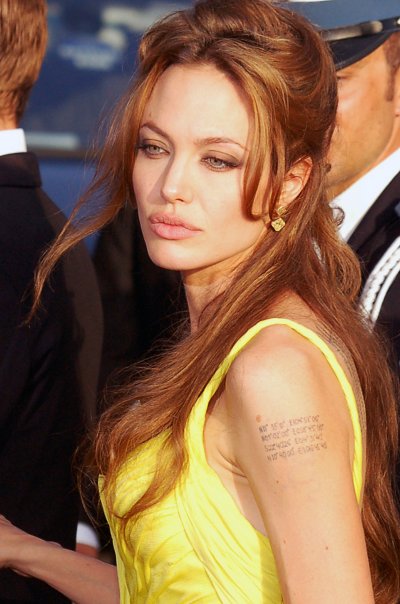
4. **The Emergence of a Global Action Star**: Following her Academy Award win for *Girl, Interrupted*, Jolie consciously sought a departure from emotionally demanding roles, leading her to appear in the 2000 summer blockbuster *Gone in 60 Seconds*. While the film became her highest-grossing to date, earning $237.2 million internationally, her role as the mechanic ex-girlfriend of a car thief played by Nicolas Cage was relatively minor and drew criticism for its limited scope, as noted by The Washington Post writer Stephen Hunter. Jolie herself later acknowledged the film as a welcome relief after the intensity of her previous dramatic work, highlighting a strategic choice to balance artistic depth with commercial appeal.
However, it was her portrayal of the titular character in *Lara Croft: Tomb Raider* (2001) that catapulted Angelina Jolie to international superstardom. Adapting the popular video game series for the big screen, the role demanded extensive physical preparation, including learning an English accent and undergoing rigorous martial arts training. Despite receiving generally negative reviews from critics, Jolie’s physical performance and embodiment of the archaeologist-adventurer Lara Croft were widely praised. John Anderson of Newsday observed, “Jolie makes the title character a virtual icon of female competence and coolth,” recognizing her ability to define the character beyond the film’s overall reception.
*Lara Croft: Tomb Raider* proved to be an international phenomenon, grossing $274.7 million worldwide. This commercial success firmly established Jolie’s global reputation as a formidable female action star, a rare achievement in an industry often dominated by male actors in the genre. The film not only broadened her audience reach significantly but also cemented her image as a powerful and capable on-screen presence, paving the way for future roles that capitalized on her newly forged action hero persona.
Subsequent films like *Original Sin* (2001), where she starred opposite Antonio Banderas, and the romantic comedy *Life or Something Like It* (2002), while less successful critically and commercially, further showcased her range and willingness to explore diverse genres. *Original Sin* was questioned by The New York Times critic Elvis Mitchell as a “soft-core nonsense” follow-up to her Oscar win, but *Life or Something Like It* presented an unusual choice for Jolie, with Salon magazine’s Allen Barra noting her ambitious newscaster character as a rare attempt at a conventional female role. Despite these varied critical outcomes, her market value continued to rise.
By 2002, Angelina Jolie had firmly entrenched herself among Hollywood’s highest-paid actresses, commanding salaries of $10–15 million per film for the ensuing five years. This financial prowess was a testament to her global appeal and box office draw, a direct consequence of her breakthrough into mainstream action cinema. Her ability to attract large international audiences, regardless of critical reception for individual projects, underscored her burgeoning power within the industry and her status as a bankable star.
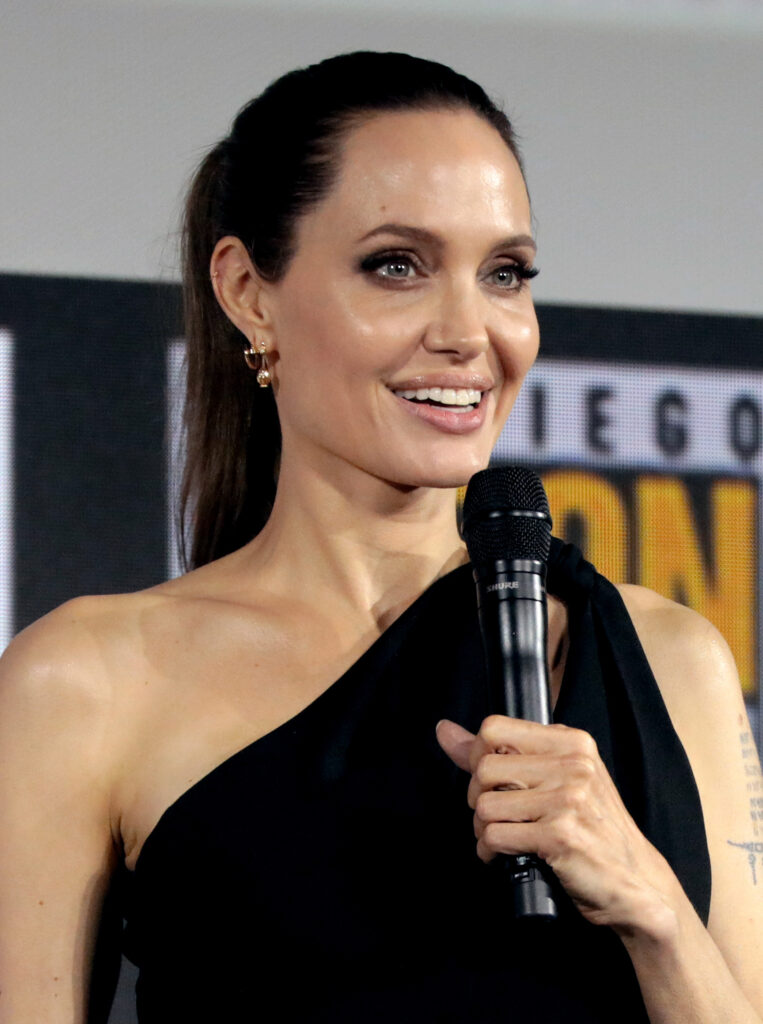
5. **Branching Out: Voice Acting and Diverse Genres**: Jolie reprised her role as the iconic archaeologist Lara Croft in *Lara Croft: Tomb Raider – The Cradle of Life* (2003). Although this sequel did not match the original’s financial success, earning $156.5 million at the international box office, it solidified her association with the action genre and her capacity to lead major franchise films. Concurrently, she appeared in the music video for Korn’s “Did My Time,” which was utilized to promote the film, showcasing her versatility in cross-promotional media. This period demonstrated a sustained effort to build upon her established action star image while exploring new avenues.
Significantly, 2003 also marked the beginning of Jolie’s engagement with what she termed “passion projects,” films intended to draw attention to pressing humanitarian causes. *Beyond Borders* (2003), in which she portrayed a socialite who becomes involved with an aid worker played by Clive Owen, stands as the first of these endeavors. Although the film struggled with both audiences and critics—Kenneth Turan of the Los Angeles Times, while acknowledging Jolie’s “electricity and believability,” found her defeated by a “badly written cardboard person”—it signaled a profound shift in her career focus, aligning her artistic choices with her burgeoning humanitarian interests.
The year 2004 was particularly busy for Jolie, seeing her appear in four distinct films, illustrating her broadening artistic scope. She starred in the thriller *Taking Lives* as an FBI profiler, a role Kirk Honeycutt of The Hollywood Reporter noted as familiar but enhanced by her “unmistakable dash of excitement and glamour.” She also made a brief, memorable appearance as a fighter pilot in *Sky Captain and the World of Tomorrow*, a pioneering science fiction adventure filmed entirely against a bluescreen. This period also marked her debut in family entertainment, voicing her first animated film, DreamWorks’ *Shark Tale*.
Further diversifying her portfolio, Jolie took on the supporting role of Queen Olympias in Oliver Stone’s historical epic *Alexander* (2004), a film about Alexander the Great. This performance met with mixed reception, particularly concerning her Slavic accent, and the film faced commercial struggles in North America, which Stone attributed partly to disapproval of the depiction of Alexander’s bisexuality. However, *Alexander* achieved international success, grossing $167.3 million, underscoring Jolie’s continued appeal to global audiences across a spectrum of film genres, from action and drama to animation and historical epics.
These varied choices, from critically acclaimed dramas to commercial blockbusters, voice acting, and passion projects, showcased Jolie’s commitment to artistic exploration. Despite some mixed critical outcomes, this period firmly established her as an actress willing to push boundaries and utilize her platform for both entertainment and advocacy, demonstrating a strategic navigation of Hollywood’s diverse landscape. This willingness to engage with disparate cinematic forms laid the groundwork for her increasingly influential and unique career trajectory.
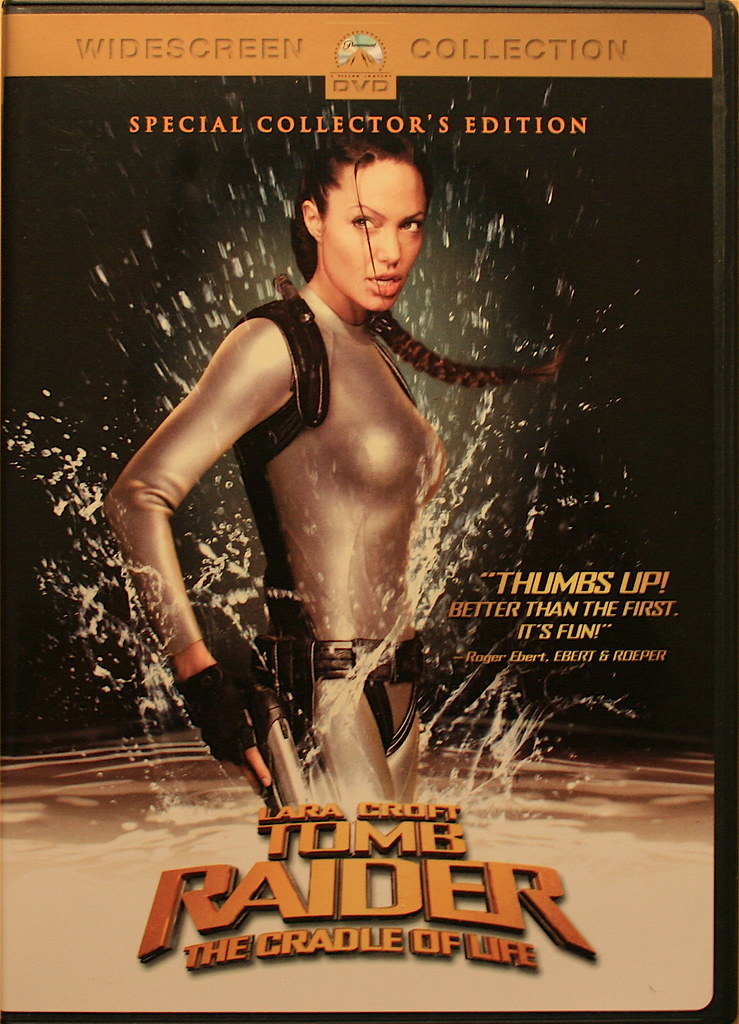
6. **The Genesis of a Humanitarian: First Encounters with Crisis**: The pivotal experience that fundamentally reshaped Angelina Jolie’s life and career occurred during the filming of *Lara Croft: Tomb Raider* in war-torn Cambodia in 2001. This direct exposure to the effects of a humanitarian crisis, a stark contrast to her Hollywood reality, profoundly impacted her, an experience she later credited with having brought her “a greater understanding of the world.” This encounter served as the catalyst for her deep engagement with global humanitarian issues, signaling a significant redirection of her public and private efforts.
Upon her return from Cambodia, driven by a newfound awareness and a compelling desire to act, Jolie proactively contacted the United Nations High Commissioner for Refugees (UNHCR). Her purpose was clear: to gather information on international trouble spots and understand the scale of global displacement. This initiative led her to embark on a series of visits to refugee camps worldwide, a personal endeavor to witness firsthand the conditions faced by displaced populations and deepen her understanding of humanitarian crises.
Her first official field visit as part of this self-initiated learning process was an 18-day mission in February 2001, taking her to Sierra Leone and Tanzania. The stark realities she witnessed during this trip left a profound impression on her, prompting her to express genuine shock at the severity of the situations. These early missions were not mere public appearances; Jolie committed to covering all costs related to her visits and shared the same rudimentary working and living conditions as UNHCR field staff, demonstrating a genuine dedication to immersion and solidarity.
In the months that followed, Jolie continued her intensive learning and engagement. She returned to Cambodia for two weeks and subsequently met with Afghan refugees in Pakistan. During her visit to Pakistan, she made a substantial donation of $1 million in response to an international UNHCR emergency appeal. This act of generosity was notable, representing the largest donation UNHCR had ever received from a private individual at that time, underscoring her commitment and setting a precedent for her significant future financial contributions to humanitarian causes.
Recognizing her genuine commitment, proactive engagement, and significant financial support, Angelina Jolie was formally named a UNHCR Goodwill Ambassador at UNHCR headquarters in Geneva on August 27, 2001. This official designation marked the beginning of a parallel career, one that would see her leverage her global platform to advocate tirelessly for refugees and bring critical attention to humanitarian crises worldwide, becoming an increasingly influential voice in international aid and diplomacy.”
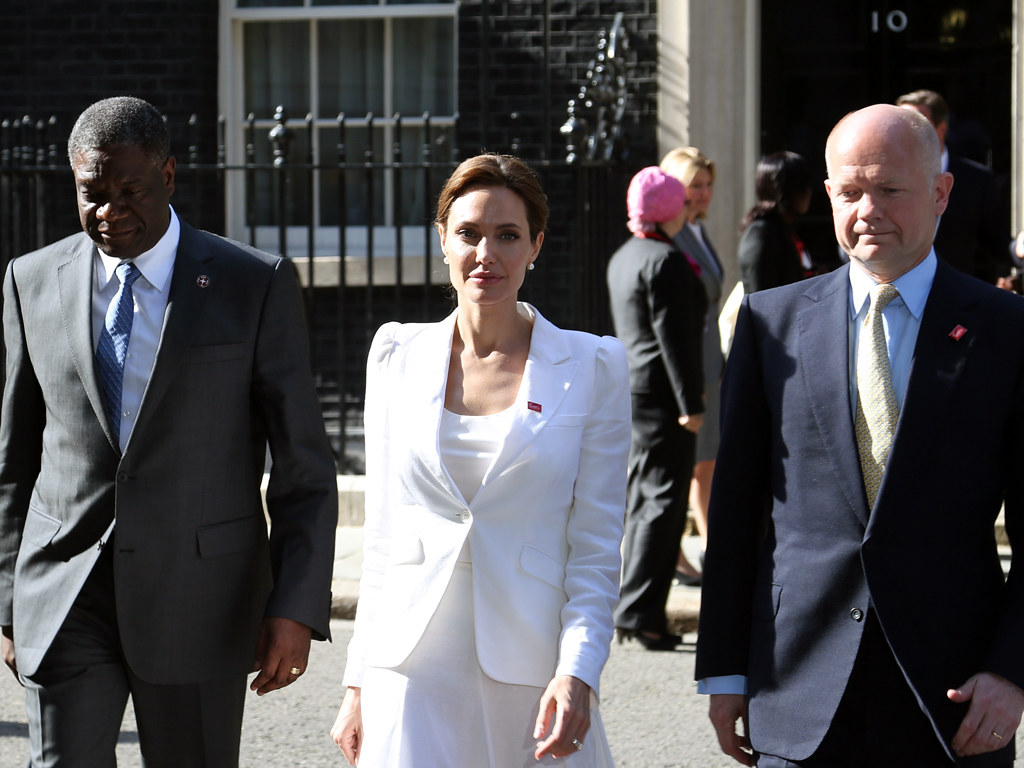
7. **Elevated Role: Special Envoy to the UNHCR**: Angelina Jolie’s dedication to humanitarian causes, which intensified significantly following her initial encounters with global crises, led to a profound evolution in her role within the United Nations High Commissioner for Refugees (UNHCR). After more than a decade of committed service as a Goodwill Ambassador, during which she undertook over 40 field missions across more than 30 countries, her impact and unwavering advocacy were formally recognized. This period established her as a relentless voice for displaced populations, tirelessly bringing critical attention to what she termed ‘forgotten emergencies.’
On April 17, 2012, her contributions were officially elevated when she was promoted to the distinguished rank of Special Envoy to High Commissioner António Guterres. This appointment marked a significant milestone, making her the first individual to hold such a position within the organization. In this expanded capacity, Jolie was granted the authority to represent Guterres and the UNHCR at the highest diplomatic levels, with a specific mandate to address and focus on major refugee crises worldwide, underscoring the trust and responsibility placed upon her.
Following her promotion, Special Envoy Jolie continued her intensive field engagement, embarking on critical missions globally. Her initial visit in this new role took her to Ecuador, her third overall visit to the country, where she met with Colombian refugees, assessing their needs and advocating for their protection. Subsequently, she accompanied High Commissioner Guterres on a week-long tour across Jordan, Lebanon, Turkey, and Iraq. This comprehensive tour was undertaken to meticulously evaluate the escalating situation of refugees displaced by the conflict in neighboring Syria, highlighting her direct involvement in urgent global humanitarian responses.
Over the subsequent years, Jolie continued to undertake more than a dozen field missions across the globe as Special Envoy, consistently meeting with refugees and advocating on their behalf. Her commitment remained undiminished even as she announced her resignation from the ambassadorship in December 2022. In her statement, she unequivocally pledged to continue her advocacy for refugees and displaced persons, signaling an enduring personal commitment to these vital causes beyond her official role.
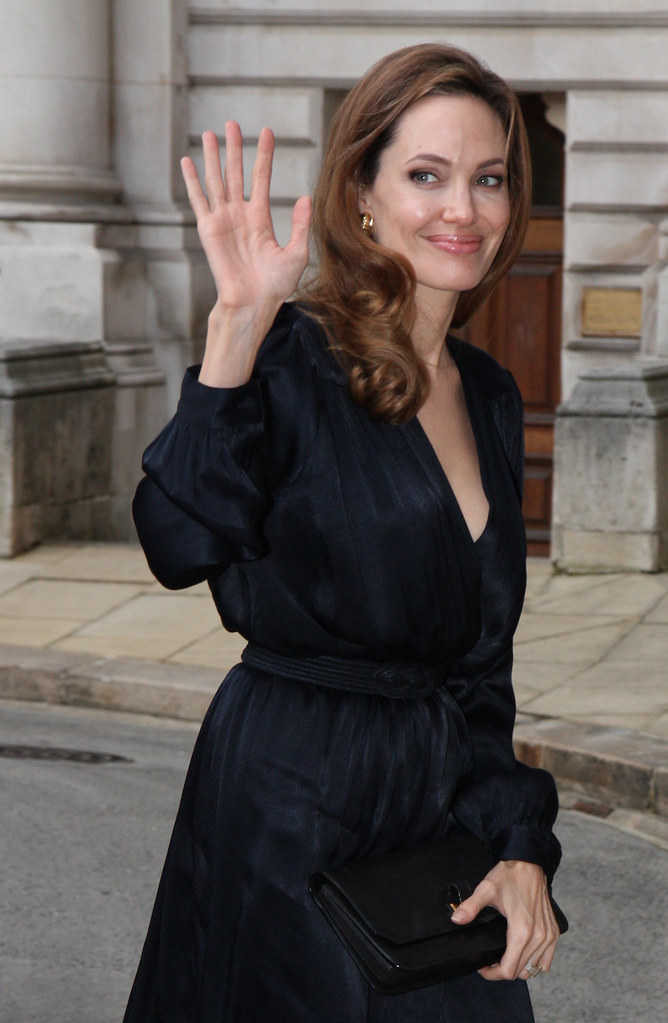
8. **Continued Acting in Varied Projects (2019-Present)**: Maintaining her presence on screen, Angelina Jolie continued to take on diverse acting roles, balancing commercial appeal with character-driven performances in the latter half of the 2010s and into the 2020s. In 2019, she reprised her iconic role as the titular character in the Disney fantasy sequel ‘Maleficent: Mistress of Evil.’ While the film received mixed reviews from critics, it demonstrated her enduring box office appeal, performing moderately well commercially with a global gross of $490 million, a testament to her widespread popularity across various demographics.
The following year, Jolie appeared in ‘Come Away’ (2020), a fantasy film that reimagined the origins of Alice in Wonderland and Peter Pan. In this movie, she starred alongside David Oyelowo as the grieving parents to the central characters, showcasing her versatility in navigating different genres and thematic depths. Her selection for such a role reflected a continued willingness to explore narratives that blend magical elements with profound human emotions, diverging from her established action persona.
In 2021, Jolie took on a physically demanding role as a smokejumper in Taylor Sheridan’s action thriller ‘Those Who Wish Me Dead.’ The film, released in May 2021, garnered moderate reviews overall. However, her performance was frequently singled out for praise, with Clarisse Loughrey of The Independent notably writing that Jolie’s ‘bare-knuckled performance… easily outclasses the film that contains it,’ underscoring her ability to deliver impactful portrayals even within mixed critical contexts.
Her venture into the expansive Marvel Cinematic Universe followed in November 2021, with Jolie portraying Thena, a warrior grappling with post-traumatic stress disorder, in the superhero film ‘Eternals.’ The film generated divergent responses from both audiences and critics, reflecting the ambitious and unconventional nature of the project. Yet, her portrayal was again highlighted, with Ann Hornaday of The Washington Post noting the ‘touching naivete’ in Jolie’s performance, further cementing her capacity to bring nuanced depth to blockbuster roles.
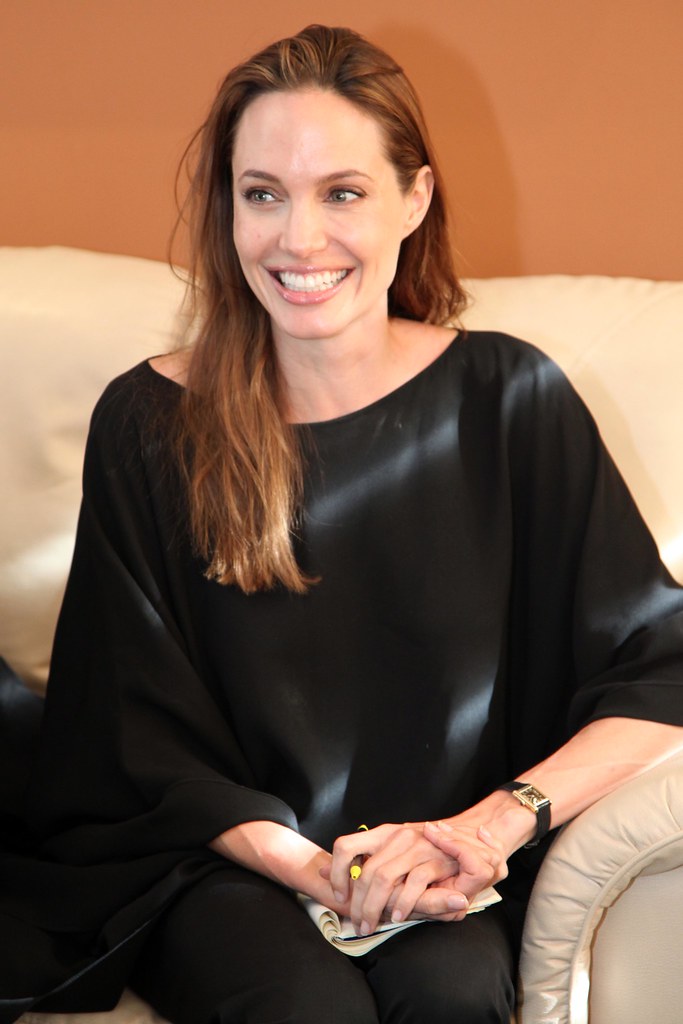
9. **Broadway Production and Upcoming Films**: Angelina Jolie’s artistic endeavors have recently expanded into the realm of theater production, marking a significant new chapter in her multifaceted career. In 2024, she became a producer for the musical ‘The Outsiders,’ which transferred to Broadway. This venture proved highly successful, culminating in the prestigious Tony Award for Best Musical, an achievement that broadened her influence within the entertainment industry beyond film.
Concurrently, Jolie has continued her work as a filmmaker, demonstrating her commitment to storytelling from multiple perspectives. She wrote, produced, and directed the 2024 war drama ‘Without Blood,’ an adaptation of Alessandro Baricco’s novel. This film, starring Salma Hayek and Demián Bichir, signifies her ongoing dedication to exploring serious geopolitical and human themes through the medium of cinema, further establishing her as a serious directorial voice.
In a highly anticipated return to a starring role, Jolie is set to portray opera singer Maria Callas in Pablo Larraín’s biographical film ‘Maria.’ The film, which premiered at the 81st Venice International Film Festival, has already garnered significant critical acclaim for Jolie’s performance. Tomris Laffly of RogerEbert.com lauded it as a ‘career-best performance,’ describing her as playing Callas ‘with an ethereal presence, grasping the intense grief of the once-in-a-generation singer who’s been losing her voice.’ This role has also earned her another Golden Globe nomination for Best Actress, reinforcing her enduring power as a dramatic actress.

10. **Enduring Public Figure and Advocate**: Angelina Jolie has unequivocally emerged as one of the most compelling and influential public figures of her generation, transcending the conventional boundaries of Hollywood stardom. Her journey from a tumultuous youth, marked by significant personal struggles, to a globally recognized icon reflects an extraordinary trajectory defined by resilience, profound artistic achievements, and an unwavering commitment to humanitarian causes. This evolution has solidified her legacy as a woman of immense depth and purpose.
Consistently leveraging her powerful global platform, Jolie has become a tireless advocate for vulnerable populations and critical global issues. Her dedicated work as a Special Envoy for the UNHCR has brought vital attention to refugee crises worldwide, complementing her significant contributions to conservation, education, and women’s rights. These efforts have earned her numerous accolades, including the Jean Hersholt Humanitarian Award and the distinction of being made an honorary Dame Commander of the Order of St Michael and St George, recognizing her impactful humanitarian diplomacy.
Beyond her formal roles, Jolie remains a subject of widespread public attention, frequently cited as one of the most powerful and influential individuals in the American entertainment industry, and often celebrated for her striking beauty. Yet, her public identity is fundamentally shaped by her willingness to engage with complex societal issues and to vocalize her perspectives on global events, often connecting her personal convictions to broader political and cultural trends, despite the constant scrutiny of her personal life.
Her profound engagement with the world’s most pressing challenges, from war zones to conservation efforts, positions her as a distinctive voice in contemporary discourse. As a figure who deeply loves her home country but is willing to critically assess its direction in a global context, Angelina Jolie embodies a unique blend of national pride and universal humanitarianism. Her unwavering dedication to fostering justice, equality, and a life of meaning for all people, wherever they may be, continues to define her remarkable and enduring legacy, ensuring her impact resonates far beyond the silver screen.

